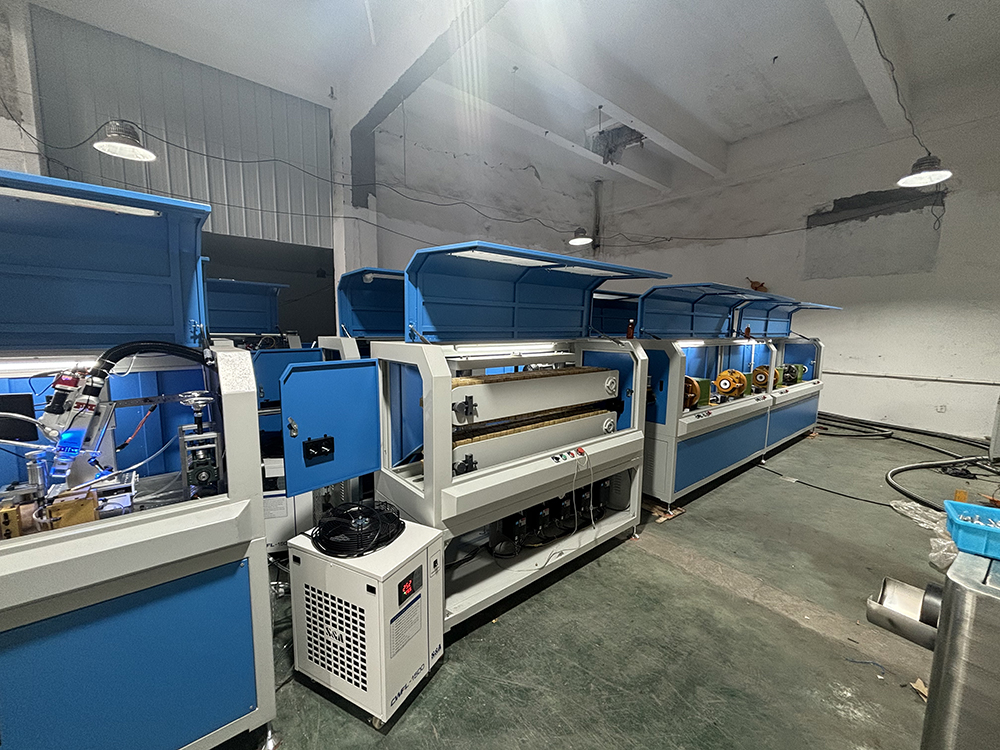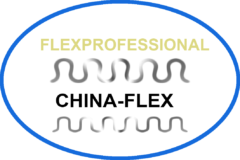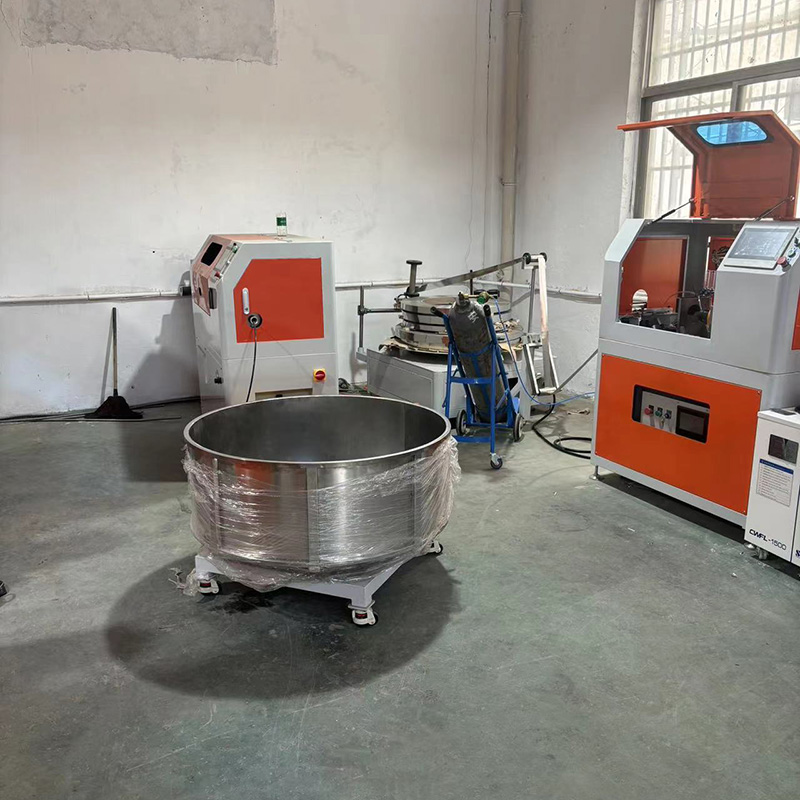Introduction
Mechanical hose forming machines are dedicated production systems designed to transform stainless steel strip into flexible corrugated hose. Through a sequence of rolling, welding, corrugating, and reforming, these machines deliver the annular wave structure that gives the finished hose its unique performance. Depending on production requirements, the equipment can be configured with two forming heads or four forming heads, each offering distinct capabilities for different product ranges.
Two-Head Mechanical Hose Machines
In a two-head configuration, the line typically includes one primary forming station followed by a secondary reforming station. This arrangement balances efficiency and precision, allowing continuous production of common hose sizes. The two-head system is valued for its relatively compact footprint, stable output speed, and suitability for mainstream diameters widely used in gas connections, water supply lines, and household appliance hoses.
Four-Head Mechanical Hose Machines
The four-head version introduces additional forming stages, enabling finer corrugation shaping and higher flexibility of the finished hose. Multiple passes distribute forming stress more evenly, resulting in smoother wave geometry and a softer bending characteristic. This configuration is often chosen when manufacturers require a wider size range, tighter bending radii, or premium-grade hoses intended for demanding environments such as solar thermal systems, industrial gas supply, or high-end sanitary installations.

Advantages of Corrugated Hose Produced by Mechanical Forming
The hoses made on these machines combine the metallurgical strength of stainless steel with the functional benefits of corrugation:
-
Flexibility and Bendability – Corrugated profiles allow the hose to route through confined spaces without kinking.
-
Vibration Absorption – The wave structure dampens mechanical vibrations, protecting connected equipment and extending service life.
-
Thermal Compensation – Corrugated hose can accommodate expansion and contraction caused by temperature changes, reducing stress on piping systems.
-
Durability and Safety – Stainless steel offers resistance to corrosion, pressure, and high temperature, ensuring long service cycles in harsh conditions.
-
Versatility of Application – From residential gas connections to fire protection systems and industrial heat exchangers, mechanically formed hoses cover a broad application spectrum.
Conclusion
Mechanical hose forming machines, whether in two-head or four-head configurations, represent the backbone of modern corrugated hose production. The two-head design provides reliable, efficient output for common specifications, while the four-head system enhances flexibility and quality for specialized applications. The hoses produced combine safety, durability, and adaptability, making them indispensable components across industries ranging from household utilities to advanced industrial installations.

